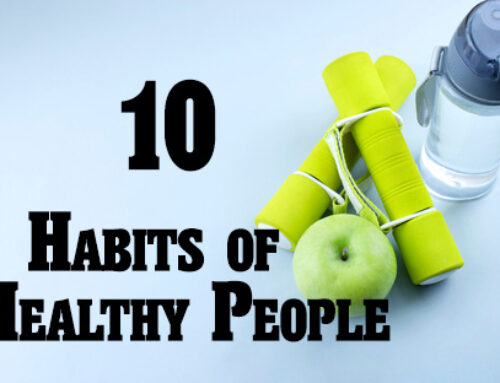We are continuing our series of teaching our [LivFit] approach to nutrition this week on the subject of inflammation and depression. We start with the challenging question of “Is depression a result of a chemical imbalance of the brain or a result of inflammation from a poor diet and lifestyle?”
Science has told us for years that certain forms of cancer, autoimmune disorders, and degenerative diseases are a result of high rates of systemic inflammation. This inflammation problem is heavily influenced by our daily decisions of nutrition and other lifestyle factors. But, the idea that depression and other mental health conditions could be caused by similar inflammatory agents and not by an imbalance of chemicals in the brain seems almost sacrilegious to ask.
Yet as popular as the “Depression=Neurotransmitter Imbalance” theory is, the theory is starting to show some cracks. For example recent research has shown that:
- Reducing levels of norepinephrine, serotonin and dopamine does not produce depression in humans, even though it appears to do so in animals.
- Although some depressed patients have low levels of serotonin and norepinephrine, the majority (75%) do not.
A new theory called the “Immune Cytokine Model of Depression” is challenging the old imbalance model. It holds that depression is not a disease itself, but instead depression may be a symptom of chronic inflammation.
The backbone of this theory falls on these points:
- Depression is often present in acute, inflammatory illnesses.
- Higher levels of inflammation increases the risk of developing depression.
- Administering endotoxins that provoke inflammation to healthy people triggers classic depressive symptoms.
- Remission of clinical depression is often associated with a normalization of inflammatory markers.
- Antidepressants (particularly SSRIs) have been shown to reduce the production of pro-inflammatory cytokines. This suggests that SSRIs are anti-inflammatory, which would explain their mechanism of action if inflammation is a primary driver of depression.
The research on this topic is robust, and the connection between depression and inflammation is becoming more established. But if depression is primarily caused by inflammation, the obvious question that arises is, “what is causing the inflammation?”
Common Causes of Inflammation and Depression
Inflammation has now been linked to nearly all modern disease, including diabetes, Alzheimer’s, cardiovascular disease, autoimmune disease, allergies, asthma, and arthritis. So perhaps it shouldn’t come as much of a surprise that depression is also caused by inflammation.
The downside of this connection is that our modern diet and lifestyle are full of factors that provoke inflammation and thus cause disease. The upside is that if we address these factors and reduce inflammation, we can prevent and even reverse the chronic, inflammatory diseases that have become such a fixture of our culture.
Here are the most common causes of inflammation, which are also associated with depression.
Diet
There are several problems with the modern diet. It is high in foods that provoke inflammation, such as refined flour, excess sugar, oxidized (rancid) fats, trans fats, and a wide range of chemicals and preservatives. And it is low in foods that reduce inflammation, like long-chain omega-3 fats, fermented foods, and fermentable fiber. Numerous studies have associated the Western diet with major depressive disorder.
Obesity
One of the most harmful consequences of the modern diet has been the dramatic increase in obesity. Obesity is an inflammatory state. Studies have shown higher levels of inflammatory cytokines in obese people, and weight loss is associated with a decrease in those cytokines. Obesity is closely linked with depression, and while that relationship is likely multifactorial and complex, inflammation appears to play a significant role.
Gut Health
Disruptions in the gut microbiome and leaky gut (i.e. intestinal permeability) have both been shown to contribute to inflammation and correlate with depression. Numerous studies have linked unfavorable changes to the bacteria inhabiting our gut with major depressive disorder.
Stress
Stress may be one of the most obvious causes of depression, but the link between stress and inflammation is less well-known. Research has shown that psychosocial stress stimulates the pro-inflammatory cytokine network. These increases in inflammatory cytokines are in turn closely related to depressive symptoms, as described above.
Physical Activity
There’s a huge amount of evidence indicating that exercise is an effective treatment for depression—in many cases as effective or more so than antidepressant drugs. It has also been shown to prevent depression in healthy people with no pre-existing symptoms. Interestingly enough, while exercise initially produces the same inflammatory cytokines that are associated with depression, that is quickly followed by induction of anti-inflammatory substances. This is known as a hormetic effect, where an initial stressor provokes a compensatory response in the body that has positive, long-term consequences.
Sleep Deprivation
Chronic sleep loss has been shown to increase inflammatory markers even in people that are otherwise healthy. Chronic sleep loss is a well-known contributing factor to developing depression in the first place.
Vitamin D Deficiency
Low levels of vitamin D are common in Western populations, and there is growing evidence linking vitamin D deficiency to depression. Supplementation with vitamin D to normalize serum 25D levels has been shown to to reduce inflammatory markers in some, but not all cases.
Final Thoughts and Recommendations
We have known about the connection of inflammation and depression since the 1980s. Unfortunately the “chemical imbalance” theory continues to be the dominant paradigm for understanding depression nearly 30 years after this profound discovery, despite the weak correlation between serotonin, norepinephrine, dopamine and depressive symptoms. The significance of this finding is huge, both for patients and clinicians. It shifts our focus from viewing depression as being a disease caused by a chemical imbalance, which often requires medication to correct, to being a symptom of a deeper, underlying problem. It also leads to entirely new avenues of treatment, many of them more effective and safer than antidepressant drugs.
[LivFit] Action Point
Adopt an anti-inflammatory diet and lifestyle. This means eating a nutrient-dense, whole foods diet, getting enough sleep, managing stress, engaging in appropriate amounts of physical activity, getting enough Vitamin D, and nourishing your gut.
To learn more on these subjects and what strategies you can do everyday, join us for our [LivFit] Seminar September 28th, October 5th and 12th, 6-8pm. It’s happening at our Roanoke, Virginia chiropractic office. Registration ends soon! Email us to reserve your spot. Learn more on our [LivFit] page.

Daryl C. Rich, D.C., C.S.C.S.






